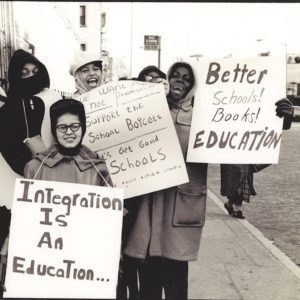History of Psychology
Psychology and Society
Psychology and Society
Given that psychology deals with the human condition, it is not surprising that psychologists would involve themselves in social issues. For more than a century, psychology and psychologists have been agents of social action and change. Using the methods and tools of science, psychologists have challenged assumptions, stereotypes, and stigma. Founded in 1936, the Society for the Psychological Study of Social Issues (SPSSI) has supported research and action on a wide range of social issues. Individually, there have been many psychologists whose efforts have promoted social change. Helen Thompson Woolley (1874–1947) and Leta S. Hollingworth (1886–1939) were pioneers in research on the psychology of sex differences. Working in the early 20th century, when women’s rights were marginalized, Thompson examined the assumption that women were overemotional compared to men and found that emotion did not influence women’s decisions any more than it did men’s. Hollingworth found that menstruation did not negatively impact women’s cognitive or motor abilities. Such work combatted harmful stereotypes and showed that psychological research could contribute to social change (Scarborough & Furumoto, 1987[1]).

Among the first generation of African American psychologists, Mamie Phipps Clark (1917–1983) and her husband Kenneth Clark (1914–2005) studied the psychology of race and demonstrated the ways in which school segregation negatively impacted the self-esteem of African American children. Their research was influential in the 1954 Supreme Court ruling in the case of Brown v. Board of Education, which ended school segregation (Guthrie, 2003[2]). In psychology, greater advocacy for issues impacting the African American community were advanced by the creation of the Association of Black Psychologists (ABPsi) in 1968.
In 1957, psychologist Evelyn Hooker (1907–1996) published the paper “The Adjustment of the Male Overt Homosexual,” reporting on her research that showed no significant differences in psychological adjustment between homosexual and heterosexual men. Her research helped to de-pathologize homosexuality and contributed to the decision by the American Psychiatric Association to remove homosexuality from the Diagnostic and Statistical Manual of Mental Disorders in 1973 (Garnets & Kimmel, 2003[3]).
- Scarborough, E. & Furumoto, L. (1987). The untold lives: The first generation of American women psychologists. New York, NY: Columbia University Press. ↵
- Guthrie, R. V. (2003). Even the rat was white: A historical view of psychology (2nd ed.). Boston, MA: Allyn & Bacon. ↵
- Garnets, L., & Kimmel, D. C. (2003). What a light it shed: The life of Evelyn Hooker. In L. Garnets & D. C. Kimmel (Eds.), Psychological perspectives on gay, lesbian, and bisexual experiences (2nd ed., pp. 31–49). New York, NY: Columbia University Press. ↵

